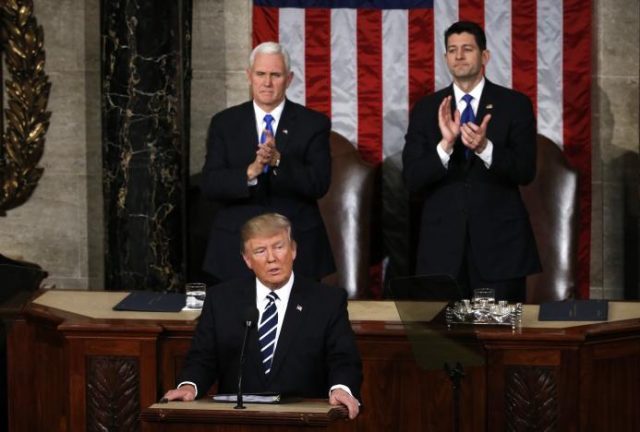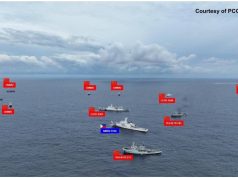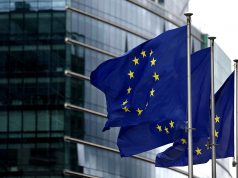BRUSSELS – The European Union sounded an alarm on Saturday about moves in the US Congress to step up US sanctions on Russia, urging Washington to keep coordinating with its G7 partners and warning of unintended consequences.
In a statement by a spokeswoman after Republicans and Democrats in the US Congress reached a deal that could see new legislation pass, the European Commission warned of possibly “wide and indiscriminate” “unintended consequences”, notably on the EU’s efforts to diversify energy sources away from Russia.
Earlier, US Republicans and Democrats reached agreement on legislation that allows new sanctions against Russia, Iran and North Korea, in a bill that would limit any potential effort by President Donald Trump to try to lift sanctions against Moscow.
The Countering Iran’s Destabilizing Activities Act, which was passed by the Senate a month ago, was held up in the House of Representatives after Republicans proposed including North Korea sanctions in the bill.
The House is set to vote on Tuesday on a package of bills on sanctions covering Russia, Iran and North Korea, according to House Majority Leader Kevin McCarthy’s office. The measure will “hold them accountable for their dangerous actions,” McCarthy said in a statement Saturday.
Under the proposed bill, Trump must submit to Congress a report on proposed actions that would “significantly alter” US foreign policy in connection with Russia, including easing sanctions or returning diplomatic properties in Maryland and New York that former President Barack Obama ordered vacated in December.
Congress would have at least 30 days to hold hearings and then vote to uphold or reject Trump’s proposed changes.
Many lawmakers hope the bill will send a message to Trump to keep a strong line against Russia.
Trump, who met Putin at the Group of 20 summit in Hamburg earlier this month and said it was an “honor” to meet him, has been criticized for seeking to reset U.S.-Russian relations. His administration has been bogged down by ongoing investigations of possible ties between his 2016 campaign and Russia.
With the bill, Republicans and Democrats are seeking to punish Russia for its 2014 annexation of Crimea, a peninsula belong to Ukraine, and for meddling in the 2016 presidential election.
Putin has denied any meddling in the US democratic process last year. Trump has said that his campaign did not collude with Russia.
German deal
Germany has already warned of possible retaliation if the United States moves to sanction German firms involved with building a new Baltic pipeline for Russian gas.
EU diplomats are concerned that a German-US row over the Nord Stream 2 pipeline being built by Russia’s state-owned Gazprom could complicate efforts in Brussels to forge an EU consensus on negotiating with Russia over the project.
“We highly value the unity that is prevailing among international partners in our approach towards Russia’s action in Ukraine and the subsequent sanctions. This unity is the guarantee of the efficiency and credibility of our measures,” the Commission said in its statement.
“We understand that the Russia/Iran sanctions bill is driven primarily by domestic considerations,” it went on, referring to a bill passed in the US Senate last month and to which lawmakers said on Saturday they had unblocked further obstacles.
“As we have said repeatedly, it is important that any possible new measures are coordinated between international partners to maintain unity among partners on the sanctions that has been underpinning the efforts for full implementation of the Minsk Agreements,” the Commission said, referring to an accord struck with Moscow to try to end the conflicts in Ukraine.
“We are concerned the measures discussed in the US Congress could have unintended consequences, not only when it comes to Transatlantic/G7 unity, but also on EU economic and energy security interests. This impact could be potentially wide and indiscriminate, including when it comes to energy sources diversification efforts.
“Sanctions are at their most effective when they are coordinated. Currently our sanctions regimes are coordinated. As a result their impact on the ground is increased and through coordination we are able to avoid surprises, manage potential impact on our own economic operators and address collectively efforts to circumvent such measures. Unilateral measures would undermine this,” the Commission said.
“We therefore call on the US Congress/authorities to engage with the partners, including the EU, to ensure coordination and to avoid any unintended consequences of the measures discussed.”










